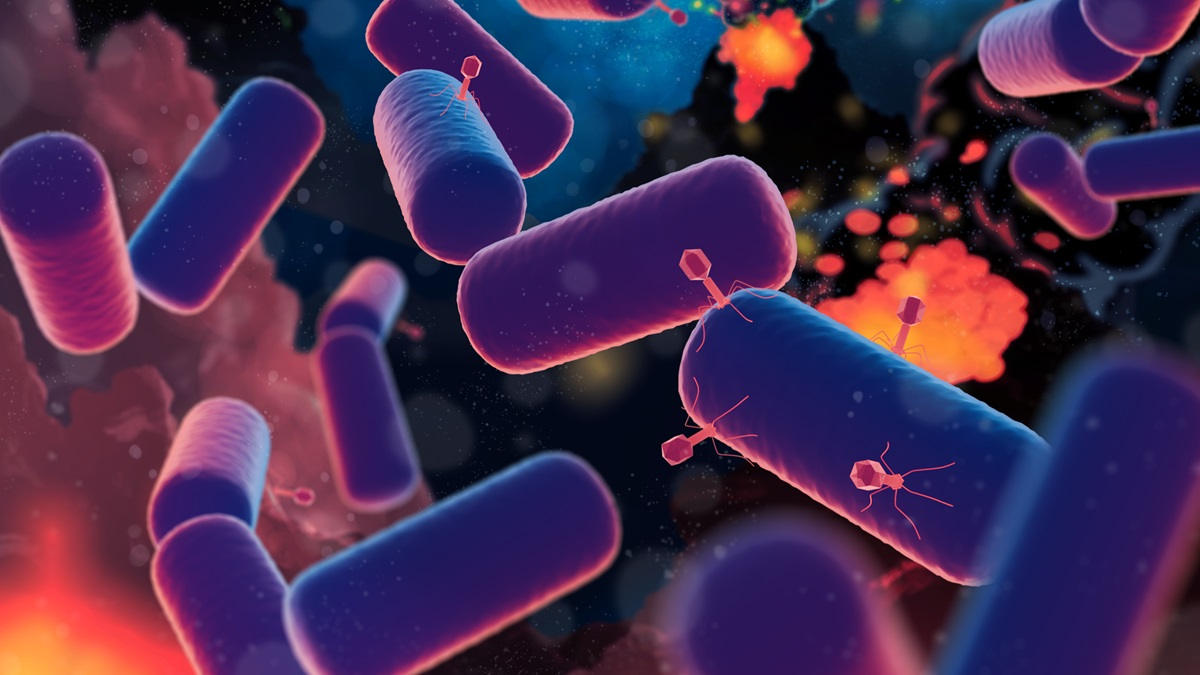Go back far enough and you reach the point in time when you could meet common ancestor of all cellular life – from bacteria to dinosaurs, ferns and humans.
Scientists call this hypothetical single-celled organism “LUCA” (Last Universal Common Ancestor).
LUCA is at the root of the tree of life, before organisms on Earth diversified into the 3 main groups : Bacteria, Archaea and Eukarya (this last group includes plants, animals and fungi).
All LUCA’s descendants share the same amino acids, which build proteins in cellular organisms; the same energy chemical ATP; the same basic cellular machinery; and DNA used to store information.
Understanding Earth’s earliest ecosystem, and what the environment was like, when LUCA lived, has been a major plank of scientific endeavour.
But first, researchers had to determine how long ago LUCA lived. Using genetic information and known time separation between species from the fossil record, scientists have now determined that LUCA lived 4.2 billion years ago.
“We did not expect LUCA to be so old, within just hundreds of millions of years of Earth formation,” says Sandra Álvarez-Carretero from the University of Bristol, UK, co-author of the study published in Nature Ecology & Evolution. “However, our results fit with modern views on the habitability of early Earth.”
The team then went to work on figuring out how organisms’ physiology changed between LUCA and modern lifeforms.
“The evolutionary history of genes is complicated by their exchange between lineages,” explains lead author Edmund Moody, also from Bristol University. “We have to use complex evolutionary models to reconcile the evolutionary history of genes with the genealogy of species.”
Their results were surprising.
“Our study showed that LUCA was a complex organism, not too different from modern prokaryotes, but what is really interesting is that it’s clear it possessed an early immune system, showing that even by 4.2 billion years ago, our ancestor was engaging in an arms race with viruses,” says co-author Bristol professor of phylogenomics Davide Pisani.
The research paints an archaic world with an ecosystem much more complex than previously thought.
“It’s clear that LUCA was exploiting and changing its environment, but it is unlikely to have lived alone,” says co-author Tim Lenton from the University of Exeter, also in the UK. “Its waste would have been food for other microbes, like methanogens, that would have helped to create a recycling ecosystem.”
“It also demonstrates just how quickly an ecosystem was established on early Earth,” adds co-author Philip Donoghue, also from Bristol. “This suggests that life may be flourishing on Earth-like biospheres elsewhere in the universe.”













/https://tf-cmsv2-smithsonianmag-media.s3.amazonaws.com/filer_public/d1/82/d18228f6-d319-4525-bb18-78b829f0791f/mammalevolution_web.jpg)






Discussion about this post